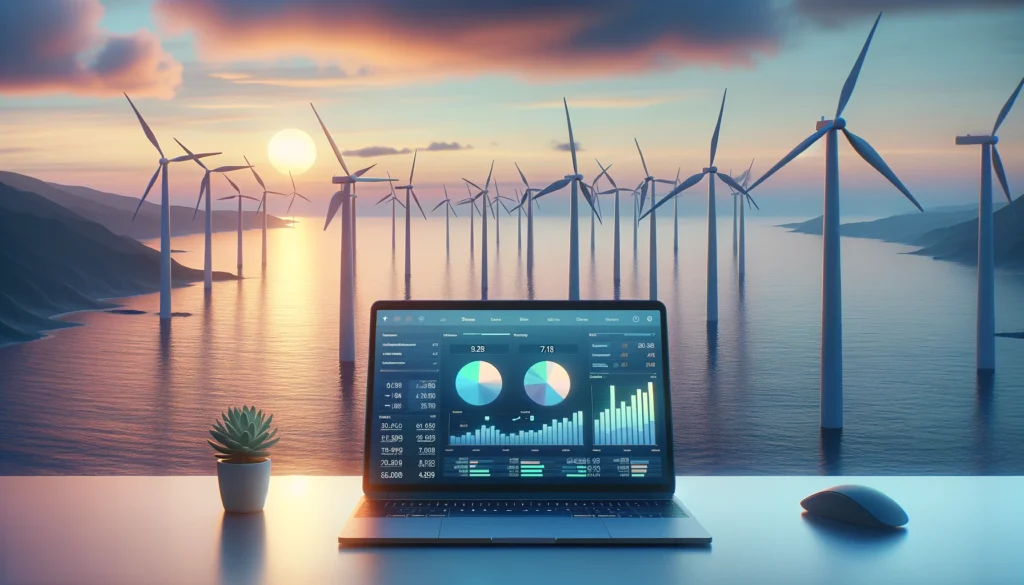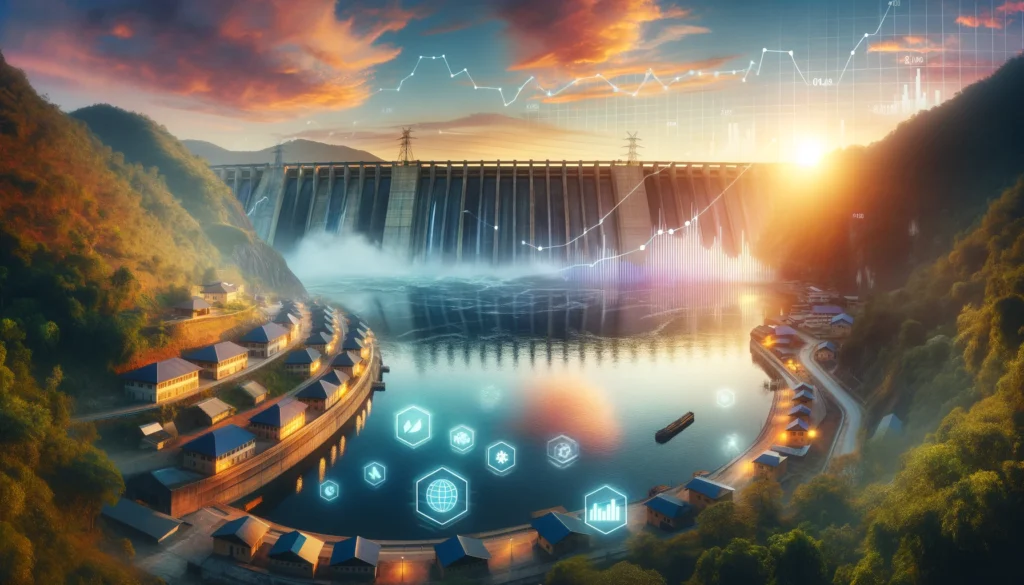In an era marked by growing environmental concerns and fluctuating fossil fuel prices, the energy landscape is undergoing a profound transformation. Renewable energy sources such as solar, wind, hydro, and geothermal power are gaining traction as viable alternatives to traditional fossil fuels like coal, oil, and natural gas. This shift towards renewables is not just driven by environmental imperatives but also by compelling economic reasons. In this article, we delve into the economics of energy and explore why investing in renewables makes sense from both financial and strategic standpoints.
Table Of Content
We invite you to read: “From Trash to Treasure: Unleashing the Potential of Biomass Energy”

1. Cost Competitiveness
One of the most compelling arguments for renewable energy investment is its increasing cost competitiveness. Over the past decade, the cost of technologies such as solar photovoltaic (PV) panels and wind turbines has plummeted significantly. According to the International Renewable Energy Agency (IRENA), the global weighted-average cost of electricity from solar PV declined by 85% between 2010 and 2020, while onshore wind saw a 56% reduction in costs during the same period. These dramatic cost declines have made renewables more affordable than ever, often on par with or even cheaper than fossil fuels in many regions.
2. Price Stability
Unlike fossil fuels, whose prices are subject to geopolitical tensions, supply disruptions, and volatile market dynamics, renewable energy offers price stability. Once renewable energy infrastructure is in place, the marginal costs of producing electricity are minimal since sunlight, wind, and water are essentially free resources. This stability shields consumers and businesses from the uncertainty associated with fossil fuel price fluctuations, making renewables an attractive option for long-term energy planning and investment.
3. Environmental Benefits
Beyond their economic advantages, renewables offer significant environmental benefits. By producing electricity without emitting greenhouse gases and other harmful pollutants, renewable energy technologies help mitigate climate change, improve air quality, and safeguard public health. The transition to renewables also reduces reliance on finite fossil fuel reserves, thereby enhancing energy security and minimizing the risks associated with resource depletion and energy geopolitics.
We invite you to read: “The Intersection of Offshore Wind Energy and Climate Change Mitigation”

4. Job Creation and Economic Growth
Investments in renewable energy not only drive the transition to a cleaner and more sustainable energy system but also stimulate economic growth and job creation. The renewable energy sector employs millions of people worldwide in various roles, from manufacturing and construction to research and development. According to the International Labour Organization (ILO), the renewable energy industry has the potential to create millions of additional jobs in the coming years, contributing to economic resilience and inclusive development.
5. Technological Innovation
The shift towards renewables fosters technological innovation and industrial competitiveness. As countries and companies invest in research and development to improve the efficiency and effectiveness of renewable energy technologies, breakthroughs emerge, driving down costs further and unlocking new opportunities for growth and innovation. Moreover, the renewable energy sector spurs advancements in complementary technologies such as energy storage, grid integration, and smart infrastructure, paving the way for a more flexible, resilient, and interconnected energy system.
6. Risk Mitigation
Investing in renewables also helps mitigate risks associated with climate change and fossil fuel dependence. As extreme weather events become more frequent and severe, renewable energy sources offer decentralized and distributed generation capabilities, reducing vulnerability to disruptions in centralized power systems. Furthermore, diversifying energy sources with renewables enhances energy resilience and adaptability, safeguarding against supply chain disruptions and geopolitical instabilities that could impact fossil fuel imports.
We invite you to read: “Offshore Wind Turbines: A Sustainable Solution for Energy Needs”

Conclusion
The economics of energy are increasingly tilting in favor of renewables, driven by cost competitiveness, price stability, environmental benefits, job creation, technological innovation, and risk mitigation. As governments, businesses, and investors recognize the economic imperatives of transitioning to a low-carbon energy future, the momentum behind renewables continues to grow. By seizing the opportunities presented by renewable energy investments, societies can not only reap significant economic rewards but also accelerate the transition towards a more sustainable, equitable, and resilient energy system for generations to come.
FAQs
Why are renewables considered a sound investment in today’s energy landscape?
Renewable energy sources offer cost competitiveness, price stability, environmental benefits, job creation, technological innovation, and risk mitigation, making them attractive investments in the face of evolving economic and environmental challenges.
How do renewables compare to traditional fossil fuels in terms of cost competitiveness?
The cost of renewable energy technologies like solar PV and wind power has significantly decreased over the past decade, making them increasingly competitive with fossil fuels and often cheaper in many regions.
What environmental benefits do renewables provide?
Renewable energy technologies produce electricity without emitting greenhouse gases and other harmful pollutants, helping mitigate climate change, improve air quality, and enhance energy security by reducing reliance on finite fossil fuel reserves.
How do investments in renewables contribute to job creation and economic growth?
The renewable energy sector employs millions of people worldwide in various roles, from manufacturing and construction to research and development, stimulating economic growth, and fostering technological innovation.
What role does technological innovation play in the renewable energy sector?
Investments in renewable energy drive technological innovation and industrial competitiveness, leading to breakthroughs that further reduce costs, enhance efficiency, and unlock new opportunities for growth and innovation.
You May Also Like
- Small-Scale Energy Revolution: Vertical Axis Wind Turbines for Homes
- The Science of Wind Energy: How Turbines Convert Air into Electricity
- Wind Turbines and Wildlife: Balancing Energy and Ecology
- Small-Scale Wind Turbines: Bringing Clean Energy to Communities
- Blowing Away Fossil Fuels: The Impact of Wind Turbines on Energy Production

